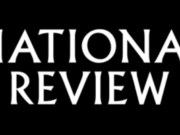This piece originally appeared in New York Daily News on February 7, 2019.
Democracy is broken! The American people have lost their voice! The system is rigged! At least, that’s the case according to the 40 new Democrats in the House of Representatives. (Then how did they get elected?)
So what is the new House’s first order of business? Voting themselves money from the taxpayers to fund their reelection campaigns.
These taxpayer dollars will come courtesy of H.R. 1, the so-called For the People Act of 2019. Given all the massive subsidies for political candidates in the bill, it should be called the For the Politicians Act..
The 570-page monstrosity contains a provision to match each dollar of small donations with 6 dollars of taxpayer funding. The program is modeled off New York City’s existing tax-financing scheme, which should be noted is hardly a model of clean government.
If one program giving away taxpayer dollars to politicians weren’t bad enough, H.R. 1 also requires the Federal Election Commission to establish a pilot “voucher” program for campaign contributions in the states. This program is to be modeled after Seattle’s “Democracy Voucher” program.
As the examples of New York City and Seattle show, however, public financing of campaigns actually helps established candidates and forces citizens to financially support candidates against their will.
In New York City’s last mayoral election, Mayor de Blasio cruised to his second term, winning more than 66% of the vote. De Blasio is anything but a small-time candidate and has raised gobs of money from donors big and small. Yet de Blasio convinced the city’s Campaign Finance Board that he faced more than “minimal opposition” in his primary election.
As a result, he qualified for 6-to-1 matching funds and received more than $2.5 million from taxpayers just for his primary. His closest challenger had raised only $124,000 by that point. If implemented at the federal level, expect prolific fundraisers to benefit while lesser-known challengers are left in the dust.
Seattle’s voucher program fared little better than its East Coast counterpart, similarly failing to help upstart candidates. First-time candidates like Hisam Goueli explained they spent “four or five hours each day trying to get the democracy voucher program working.” Meanwhile, just three well-established candidates received 92% of the program’s total funding while less than 4% of citizens took advantage of the vouchers. So much for helping the little guy.
If funding well-connected incumbent politicians isn’t a big enough waste of taxpayer dollars, how about spending that money to attack minorities?
One New York City Council candidate, Thomas Lopez-Pierre, campaigned on a platform centered on attacking “greedy Jewish landlords.” To help spread his message, New York taxpayers kicked in almost $100,000 in taxpayer financing. Lopez only raised $17,000 otherwise.
Something tells me the House would be similarly less than thrilled to hand over taxpayer financing to Holocaust denier Arthur Jones, who appeared on the ballot for the 3rd Congressional District in Illinois. If H.R. 1 had been law, Jones would have been eligible for hundreds of thousands of taxpayer dollars.
Any provision Congress includes to try to deny hateful candidates access to taxpayer financing would almost certainly be found unconstitutional. After all, the First Amendment prevents government from discriminating against viewpoints, no matter how reprehensible or unpopular.
In short, taxpayer funding of campaigns as designed by H.R. 1 is likely to help incumbents and established candidates who already have large fundraising networks in place. Furthermore, it forces citizens to subsidize speech they may disagree with. How exactly is such a program “for the people”?














